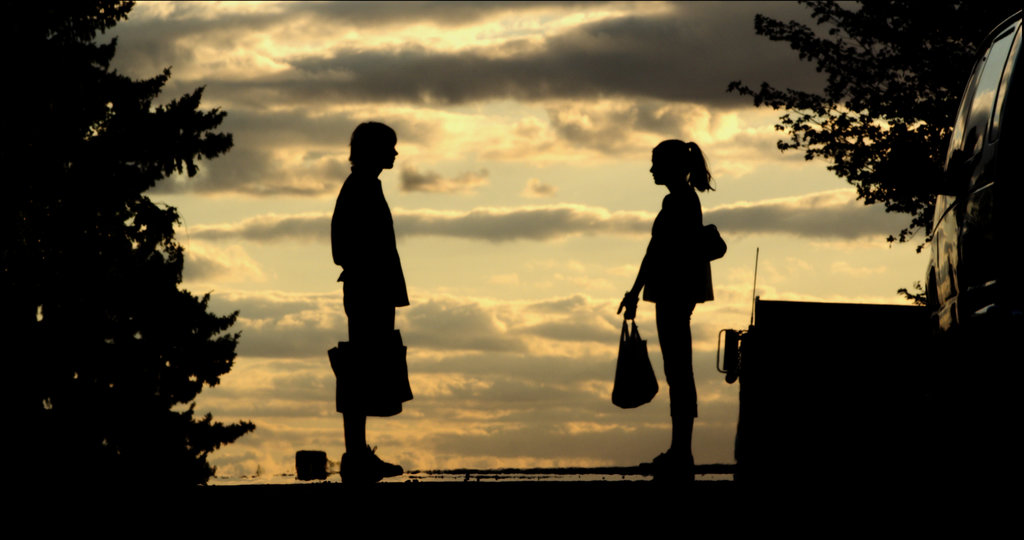It’s something of a pastime for Christians to look for Jesus at the movies. (Decades-old spoilers ahead!) There’s Neo from The Matrix trilogy, the “One” who sacrificed himself and was resurrected. There’s John Coffey from The Green Mile, the miracle-working inmate who was executed by the state for a crime he didn’t commit. There’s Aragorn from The Lord of the Rings trilogy who, by the end of the third film, is revealed as the returning king.
While some efforts to connect the dots to Christ are more tenuous than others, this kind of movie-watching is, perhaps to a fault, common among Christians.
 So, too, are the “Christian movies” that lionize believers for their passion and perseverance amid trials of various kinds. In God’s Not Dead, for example, the scarecrow of classroom secularism rears its head, but the plucky and prayerful undergrad boldly takes a stand for Jesus; in Facing the Giants, the prayers of the saints lead, against all odds, to gridiron glory—and a long-awaited pregnancy.
So, too, are the “Christian movies” that lionize believers for their passion and perseverance amid trials of various kinds. In God’s Not Dead, for example, the scarecrow of classroom secularism rears its head, but the plucky and prayerful undergrad boldly takes a stand for Jesus; in Facing the Giants, the prayers of the saints lead, against all odds, to gridiron glory—and a long-awaited pregnancy.
These films traffic in certain tropes whose net effect is to make Christianity antiseptic and triumphant. They also tend to glide over humanity’s fallenness. So sin is often generalized, theoretical, and innocuous: the Dawkinsian professor quotes Nietzsche approvingly; those self-sure opponents refuse to punt on fourth down.
Of course there are exceptions, but these films come to mind when people hear about “Christian movies.” It’s cinema where Christians are portrayed as one-note optimists, victors amid struggle, fretful yet successful proselytizers. In short, even with the best of intentions, much of Christian pop culture offers an incomplete portrait of our faith.
Assuming he agrees with my diagnosis, N. D. Wilson seems to want this trend to change—which is perhaps why he made a movie himself. Wilson is a Christian, so in a strict sense he’s made a “Christian movie.” Yet he’s not done that at all.
His movie is called The River Thief—and it is largely excellent.[1]
What It’s About
“Before all this, life was simple.”
Diz (Joel Courtney, of Super 8) tells us this in an opening monologue, as Wilson’s camera hovers over Idaho’s stretched-out beauty. Apropos of the film’s title, we meet Diz as he’s thieving on the river: beer, boats, lunch, whatever. He takes what he wants with gleeful impunity.
Yet our notions of Diz as a doomed ne’er-do-well quickly disintegrate when, after stealing a boat and finding an inhaler, he turns around to return it and find another means of travel. Soon enough, he arrives in town, meets a girl and her grandfather at a diner, and takes some more stuff—some of it harmless, some of it most definitely not.
The girl at the diner is Selah (Raleigh Cain). She’s half of what makes The River Thief a love story. Resilient, affable, and most certainly not a googly eyed ornament, Selah makes a fetching mark for Diz, so he quickly tries to steal her heart.
Selah’s grandfather is Marty (Tommy Cash[2]). As a Christian, Marty is the film’s moral center of gravity, offering much of its distinctly spiritual elements. Some might have the audacity to call him a Christ-figure[3] because he says things like, “You think stealing gives you control? Well, gratitude gives you freedom.” And: “The car is not for sale, neither is my food. But you can have it.”
In Marty’s eyes, Diz is the mark. He’s completely lost, driftwood without a dad. Marty recognizes these needs and wants to meet them with love. At one point, he kneels before his wife’s grave and says, “He’s just another boy that needs a father.”
Is It Worth Seeing?
You’ll notice I’ve intentionally kept The River Thief’s plot details and even its main conflict close to the vest—not because I fear spoilers, but because I’m convinced the best way to see the film is to know next-to-nothing about it. Its ebbs and flows will be most appreciated and affecting when you have no clue where the tide is taking you.
Just shy of 90 minutes, Wilson’s story ultimately expands into a sometimes pleasant, sometimes dark, and altogether surprising blend of love story and caper flick. But that’s simplistic. The River Thief offers so much more than freshly curated genre tropes. In fact, I’d argue Wilson has given us a distinctly Christian movie without any of the so-called Christian movie trappings.
There’s sin personified, particularized, and enjoyed. There’s also grace—personified, particularized, extended at risk. There are no cocksure triumphs to be found in Wilson’s film. In their place are internal, eternal, and white-knuckled battles. The villain is no philosophy prof with a penchant for snark, but a soul starved for something it doesn’t have and can’t seem to find.
I want to say more. But instead I simply invite you to see the film for yourself.
Author’s note: Now that I’ve encouraged you to see the film, I suppose it’s only right to tell you how. It’s possible The River Thief is playing in a theatre near you, but more likely you’ll need to watch it online via Amazon, YouTube, Google Play, iTunes, or some other streaming service.
[1] The film’s production history alone merits re-telling, but here are the highlights: Wilson wrote the script in essentially a weekend, actors received the scripts as they were traveling to location, and they had to shoot the entire film is less than 10 days.
[2] The brother of Johnny, in what I believe is his first role in a feature film. I’m sure there’s a story there.
[3] *whispers* I think they’d be right.
Download your free Christmas playlist by TGC editor Brett McCracken!
 It’s that time of year, when the world falls in love—with Christmas music! If you’re ready to immerse yourself in the sounds of the season, we’ve got a brand-new playlist for you. The Gospel Coalition’s free 2025 Christmas playlist is full of joyful, festive, and nostalgic songs to help you celebrate the sweetness of this sacred season.
It’s that time of year, when the world falls in love—with Christmas music! If you’re ready to immerse yourself in the sounds of the season, we’ve got a brand-new playlist for you. The Gospel Coalition’s free 2025 Christmas playlist is full of joyful, festive, and nostalgic songs to help you celebrate the sweetness of this sacred season.
The 75 songs on this playlist are all recordings from at least 20 years ago—most of them from further back in the 1950s and 1960s. Each song has been thoughtfully selected by TGC Arts & Culture Editor Brett McCracken to cultivate a fun but meaningful mix of vintage Christmas vibes.
To start listening to this free resource, simply click below to receive your link to the private playlist on Spotify or Apple Music.


































